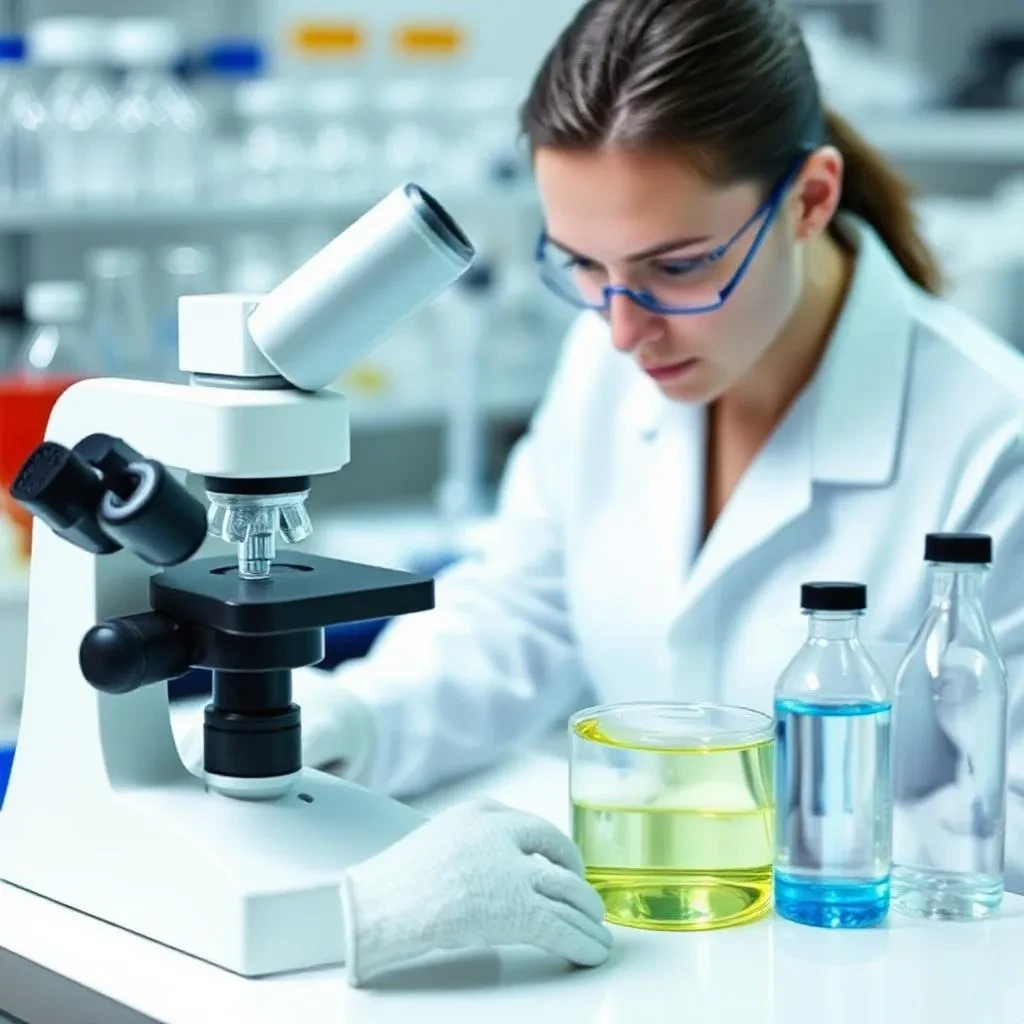
What Is Analytical Chemistry?
Analytical chemistry is a branch of chemistry focused on the identification, separation, and quantification of matter. It plays a foundational role in scientific research, quality control, drug development, environmental monitoring, and more.
Whether you’re measuring the concentration of active ingredients in a pharmaceutical formulation or detecting trace contaminants in water, analytical chemistry provides the tools and methods to obtain accurate, reliable data.
Core Principles of Analytical Chemistry
Analytical chemistry is built upon several fundamental principles:
- Precision and Accuracy: The ability to measure consistently and closely to the true value.
- Sensitivity: The smallest quantity of a substance that can be reliably detected.
- Selectivity: The ability to differentiate the target analyte from other substances.
- Linearity: The range over which a method gives proportional responses.
- Limit of Detection (LOD) and Limit of Quantification (LOQ): Critical metrics for trace analysis.
These principles are applied across various techniques to ensure valid, reproducible results.
Major Techniques in Analytical Chemistry
This is divided into qualitative (identifying substances) and quantitative (measuring amounts) approaches. Here are some of the most widely used techniques:
1. Chromatography
- HPLC (High-Performance Liquid Chromatography)
- GC (Gas Chromatography)
- TLC (Thin-Layer Chromatography) Used for separating complex mixtures and identifying individual components.
2. Spectroscopy
- UV-Vis Spectroscopy
- IR (Infrared) Spectroscopy
- Atomic Absorption (AA)
- Mass Spectrometry (MS) Measures how substances absorb or emit electromagnetic radiation, often coupled with chromatographic methods.
3. Titration and Gravimetry
Classical methods for determining concentration based on chemical reactions and mass changes.
4. Electrochemical Analysis
Includes pH measurements, potentiometry, and voltammetry, often used for ionic species and redox reactions.
Applications of Analytical Chemistry
Analytical chemistry is a cornerstone in multiple scientific and industrial domains:
📦 Pharmaceutical Industry
- Quality control of drug substances and formulations
- Impurity profiling and stability testing
- Validation of analytical methods per regulatory guidelines
🌍 Environmental Science
- Monitoring pollutants in air, water, and soil
- Trace metal analysis
- Pesticide residue detection
🧪 Biotechnology and Life Sciences
- Protein and nucleic acid quantification
- Metabolomics and proteomics studies
- Bioassay development
🍲 Food and Beverage
- Nutritional content analysis
- Contaminant and additive detection
- Shelf-life and spoilage testing
🏭 Industrial Manufacturing
- Process control and material verification
- Safety compliance for raw materials
Why Analytical Chemistry Matters
The role of analytical chemistry extends far beyond the laboratory. It impacts public health, regulatory compliance, product innovation, and environmental safety. In pharmaceutical development, for instance, it ensures that every tablet or vial meets exact potency and purity standards. In environmental monitoring, it helps detect pollutants at parts-per-billion levels.
Analytical Chemistry at Zodiac Life Sciences
At Zodiac Life Sciences, we offer advanced analytical solutions, including HPLC columns, impurity standards, and custom method development services. Our expertise in analytical chemistry enables pharma, biotech, and research institutions to achieve:
- Accurate impurity profiling
- Regulatory-compliant validation
- Robust data for submissions and audits
Whether you’re running an R&D lab or handling high-throughput QC, our products and technical support are designed to meet the highest analytical standards.
Final Thoughts
Analytical chemistry is more than a discipline—it’s the language of measurement in science and industry. As innovations evolve and regulatory demands rise, the need for high-quality analytical methods and materials becomes even more critical.
Investing in the right tools, such as validated methods, certified reference standards, and high-performance columns, can enhance your lab’s efficiency and data integrity.
With continuous advancements in instrumentation and data analysis, analytical chemistry is evolving into a more precise, automated, and high-throughput science. The integration of AI, robotics, and green chemistry practices is further enhancing the speed and sustainability of analysis—making it a critical enabler of innovation across modern science and industry.
Looking to enhance your lab’s analytical performance?
Explore Zodiac Life Sciences’ premium chromatography and analytical products today.
